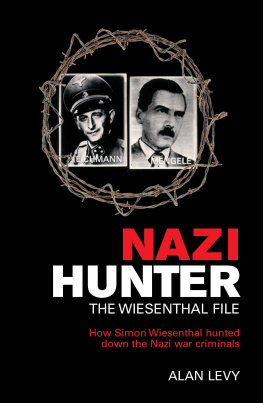Alan Hunter - Gently to the Summit
Here you can read online Alan Hunter - Gently to the Summit full text of the book (entire story) in english for free. Download pdf and epub, get meaning, cover and reviews about this ebook. genre: Detective and thriller. Description of the work, (preface) as well as reviews are available. Best literature library LitArk.com created for fans of good reading and offers a wide selection of genres:
Romance novel
Science fiction
Adventure
Detective
Science
History
Home and family
Prose
Art
Politics
Computer
Non-fiction
Religion
Business
Children
Humor
Choose a favorite category and find really read worthwhile books. Enjoy immersion in the world of imagination, feel the emotions of the characters or learn something new for yourself, make an fascinating discovery.

- Book:Gently to the Summit
- Author:
- Genre:
- Rating:4 / 5
- Favourites:Add to favourites
- Your mark:
- 80
- 1
- 2
- 3
- 4
- 5
Gently to the Summit: summary, description and annotation
We offer to read an annotation, description, summary or preface (depends on what the author of the book "Gently to the Summit" wrote himself). If you haven't found the necessary information about the book — write in the comments, we will try to find it.
Gently to the Summit — read online for free the complete book (whole text) full work
Below is the text of the book, divided by pages. System saving the place of the last page read, allows you to conveniently read the book "Gently to the Summit" online for free, without having to search again every time where you left off. Put a bookmark, and you can go to the page where you finished reading at any time.
Font size:
Interval:
Bookmark:
Alan Hunter
Gently to the Summit
CHAPTER ONE
It was a preposterous business.
As Gently remembered it, it began in the silly season, in August, with a small filler paragraph in the Evening Standard. There was no way of telling that it would go any further and certainly not that it would ever make the national front page. It read as follows: COMIN ROUND THE MOUNTAINS The annual meeting of the Everest Club the surviving members of the 1937 expedition was last night interrupted by an unidentified hoaxer. Forcing his way into the Asterbury Hotel, where the meeting was held, he announced himself as Reginald Kincaid, the climber who lost his life on Everest. He insisted that he had climbed Everest but had come down on the wrong side, and had spent the intervening years in the hands of Tibetan bandits. Club Secretary Dick Overton described the story as fabulous. He added: There is no possibility whatever that Kincaid could have survived.
That was all; an amusing titbit for the Londoners tea-table, the counterpart of a thousand other crackpot stories. In his official position Gently had to do daily with such people; he could have quoted half a score anecdotes quite as dotty as this one. So he was surprised when, a week later, the matter cropped up again, this time to earn itself a thirty-six-point heading: COMPANY DIRECTOR SUES KINCAID HOAXER Story A Slander, Says Former Expeditionist Company Director Arthur Fleece, who led the 1937 Everest Expedition, has instructed his solicitors to sue the man calling himself Reginald Kincaid. He told our reporter: The fellows tale is a slur on Kincaids memory, besides being a personal slander on myself. It was I who made the final assault with Kincaid, and was the last person ever to see him alive. About fifteen hundred feet below the summit I became exhausted. Kincaid was going strongly and refused to turn back. It was hazardous for one of us to continue alone, but he would not be argued out of it, and I was in no condition to stop him. I managed to stagger down to the assault camp, but Kincaid never returned. The next morning, before we could search for him, the monsoon had broken. There can be no doubt at all that poor Kincaid died on the mountain. The man who calls himself Reginald Kincaid is staying in the Beaufort Hotel in Kensington. In a statement to the press he claimed that Fleece separated from him on the mountain, and that he continued the ascent only after searching for his companion. He reached the summit, but in a state of exhaustion and daze. He was unable to remember the route by which he had got there. By mistake he chose the South Col when he began his descent, and fell into the hands of a party of Tibetans who had been tracking a Yeti. He expressed himself as very eager to trace his wife, and asked reporters to print an appeal to her to get in touch with him. Everest Club Secretary, Dick Overton, asked to comment on Kincaids story, said that it was a tissue of impossibilities from beginning to end. No man could have made an unaided descent of Everest, especially with monsoon conditions setting in. He estimated that at the summit Kincaid would have had only three hours supply of oxygen. The account of Tibetans tracking a Yeti was the utterest bilge. The Tibetans regarded the Yeti as being supernatural. To cap it all, the South Col would land Kincaid in Nepal, and any people he ran into would be Nepalese. When asked if any of the Everest Club members recognized Kincaid, Overton replied that it was twenty-two years since any of them had set eyes on him.
The report was accompanied by photographs of Fleece and the alleged Kincaid, the former a bald, smooth-faced man, the latter ascetic and rather vague-looking: there was also a reproduction of a plaque
belonging to the Everest Club; it bore the likeness of a square-jawed youth and the inscription: Kincaid: First on Everest: 1937.
The next stage was more predictable. This was Sunday newspaper stuff. The Sunday Echo scooped its rivals and printed Kincaids exclusive story. With banner headlines and dramatic artwork the epic was blasted at the world, the Sunday Echo caring nothing about further legal action by Arthur Fleece. And it was a story worth telling, however palpably untrue. Aided by one of the Echo s feature-writers, Kincaid made an exciting job of it. One read of his terrible struggle on the mountain, his capture by ruthless, bloodthirsty bandits, his wanderings up and down Tibet, his flying visit to the Secret City. A little difficulty might have been encountered in winding up this wondrous farrago, but Kincaids imagination proved quite equal to the task. In a vivid final instalment he told of a massacre by Chinese soldiers, of his escape with a bag of uncut gems and his fearsome crossing of the Himalayas. At Kathmandu he had sold an emerald and expedited his journey to Bombay; there he had sold the remainder of the stones and shipped on the Kermadec for Tilbury. The series was sold on the spot for publication in book form, and Arthur Fleece, growing angrier and angrier, talked of damages of transatlantic proportions.
It was at this point, as Gently knew, that the authorities had shown an interest mildly and apologetically, as though afraid of making fools of themselves. The story was checkable at its latter end and they checked it with care. They also probed about quietly for the true antecedents of Kincaid. Their results were surprising. They supported Kincaid at every point. He could be traced back from Tilbury, to Bombay, to Kathmandu. He had indeed sold some uncut stones and had transferred the money to a London account. And there was no record of his having been in England until he walked off the Kermadec at Tilbury.
Gently had mulled it over with Pagram, whod had a hand in the inquiries. So as far as you know hes telling the truth he could really be Kincaid? My dear Gently, what can one think? His tale is true as from January last. And in December, according to the Foreign Office, there was a rising in Southern Tibet
The affair took a different turn when Kincaid went to law himself; not against Fleece but against the Sunday Echo in the shape of its editor and feature-writer. They had, he claimed, grossly distorted and misrepresented his account, had taken no notice of his amendments, and had published a version he had never seen. As soon as this suit became known he was seized on by a television sponsor and was Given a chance to put his viewpoint before a panel of three experts. The performance was unedifying; the experts bullied him unmercifully. They produced maps, books, authorities, and a complex table of dates. Kincaid, a slim, jerky figure with a gaunt, worried face, was as vague and as incoherent as he had ever looked in the photographs. Yes, he realized that it was a miracle that he had got down off Everest. Yes, he understood that one side of the South Col was in Nepal. No, he had been misquoted about the Tibetans tracking a Yeti they worshipped them, you know. They were on a religious mission For most of the half-hour he was made to look very small; but then, unexpectedly, he came near to turning the tables. A native Tibetan was produced who could speak no English, and Kincaid chatted away to him with fluency and animation. His last act, as he saw the programme was about to be faded out, was to turn appealingly to the camera: If my wife should be watching this programme
His wife! His search for her seemed to be genuine, in any case. He was reported to be spending most of his time in the hunt. Advertisements appeared in the personal columns begging her to contact him, and any interview he gave always ended with the same message. And it was a fact that the real Kincaid would have had no other relatives to appeal to. He was an orphan and his guardian had died before the 1937 expedition. But if Mrs Kincaid was alive she gave no indication of being so, nor did anyone come forward who could tell of her whereabouts.
Font size:
Interval:
Bookmark:
Similar books «Gently to the Summit»
Look at similar books to Gently to the Summit. We have selected literature similar in name and meaning in the hope of providing readers with more options to find new, interesting, not yet read works.
Discussion, reviews of the book Gently to the Summit and just readers' own opinions. Leave your comments, write what you think about the work, its meaning or the main characters. Specify what exactly you liked and what you didn't like, and why you think so.


